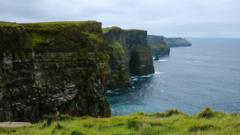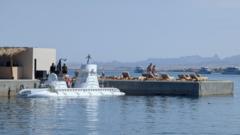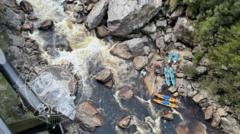The solemn site now features only a minimal historical plaque amidst remnants of nature reclaiming the area. As Guyana grapples with this part of its historical identity—widely seen as a blemish on the nation's image—some believe that guided tours could provide educational value and promote awareness about cult dynamics and mental health issues. Despite the contention, the tours are gaining attention, prompting discussions about grief, remembrance, and the ethics of trauma tourism.
Understanding the multifaceted perspectives on this sensitive issue raises questions about how societies manage their past traumas and the lessons that can emerge through reflection and dialogue.
Understanding the multifaceted perspectives on this sensitive issue raises questions about how societies manage their past traumas and the lessons that can emerge through reflection and dialogue.













